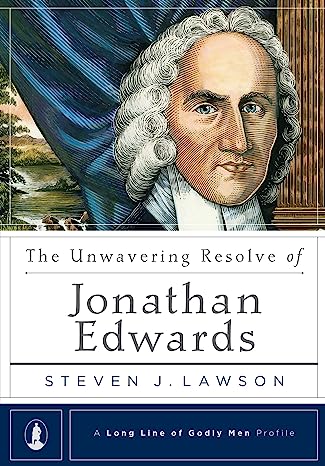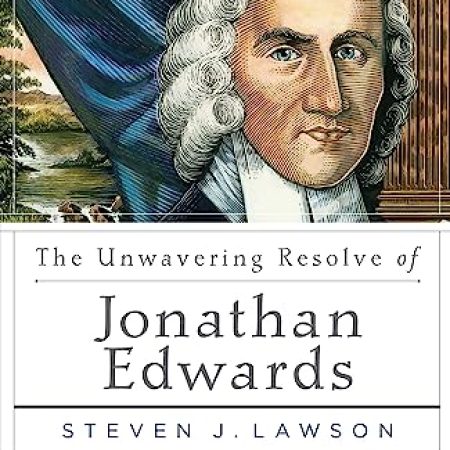
This is the second in the excellent series `Long Line of Godly Men Profiles’ published by Reformation Trust Publishing and edited by Steven Lawson who is also the author of this title. Each of the three books available so far (Calvin, Edwards, Knox) are not biographies as such but give a great insight into what made these men `tick’; what drove them on and what were the the outstanding characteristics of their lives and ministries.
Jonathan Edwards is renowned as much for his 70 Resolutions which he made as a young, newly converted man, as for anything and Lawson introduces us to him, helpfully explaining the personal circumstances out of which the Resolutions arose, before expounding them under various headings, such as The priority of God’s Glory, The putting away of sin, the precipice of eternity and the practice of love. Lawson concludes each chapter by pressing his readers to follow Edwards’ example and apply the lessons from his life to theirs.
A number of emphases came over especially strongly. First, the balance between the determination on the part of Edwards and his utter dependency on God to enable him to fulfil his resolve. He knows what he must do and is resolved with all his heart to do it, but without divine aid he has no chance. Secondly, I was struck afresh by the single-minded, disciplined attitude of this young man who set his face to the task and brought every detailed aspect of his life under its remit. His physical activity, diet, use of time were all scrutinised and meticulously disciplined to ensure he was enabled to maximise his time and energy for spiritual ends.
Third, was his application of self-examination. Edwards resolved that “at the end of every day, week, month and year” he would examine his heart and life to see where he had failed and where he could do yet more. He measured his progress, or otherwise, by his own Resolutions, by Scriptural passages, such as Proverbs and by his own “feelings”, taking extended as well as regular periods of time for self-examination.
As I read this book I was reminded of some words of Joel Beeke that I had read recently on experiential preaching. There is, he says, a cause and effect between the character of a man’s life as a Christian and his fruitfulness as a minister; a minister’s work is usually blessed in proportion to the sanctification of his heart before God. Surely, if ever a mere mortal exemplified that truth it was Jonathan Edwards.
Perhpas the highest praise I can lavish on this book is to say that whilst portraying such a life would tend to make the reader feel utterly small and inadequate by comparison, Lawson succeeds in inspiring the reader to emulate Edwards.
For the purpose of review, I received a complimentary copy of the book from the publisher. I was under no obligation to write a positive review.
Reformation Trust (31 Dec. 2009) Review written in 2011
